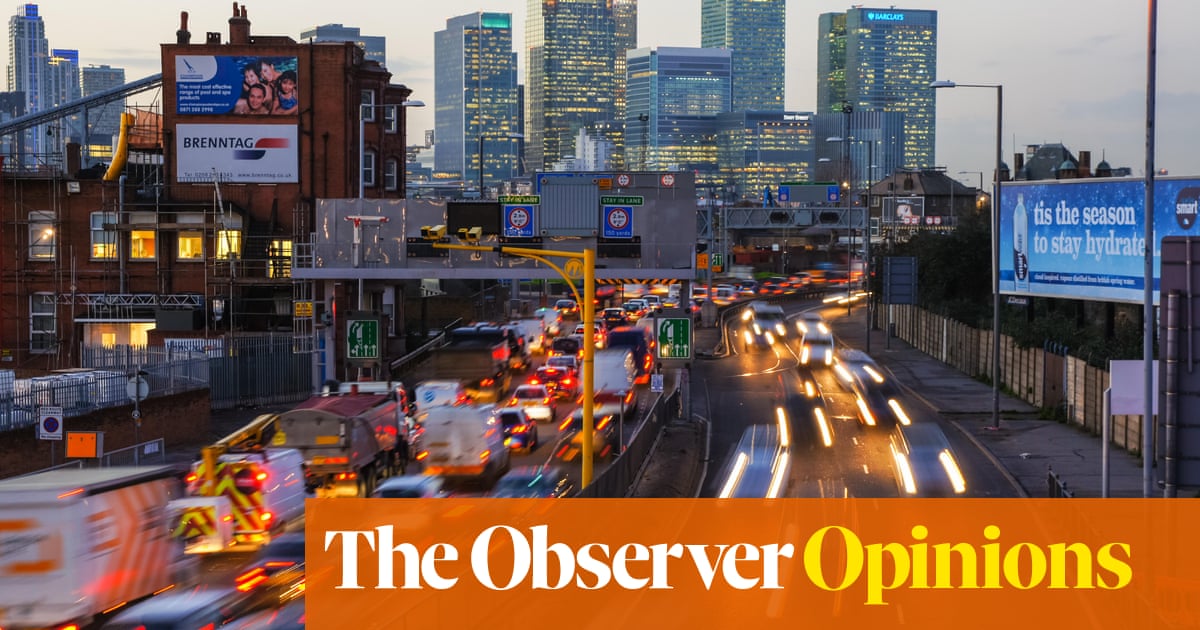Brandon Fellows, who broke into the US Capitol on January 6 and smoked marijuana in a senator’s office, stood outside the Washington DC jail where he spent part of his three years’ sentence behind bars, thinking about how Donald Trump might soon help him get his life back on track.
Having served his prison sentence after being found guilty on a slew of federal charges, the 30-year-old is today on probation under terms that have prevented him from leaving the capital region to start a chimney maintenance business in New Jersey. But with Trump returning to the White House on 20 January, Fellows expects his circumstances to change dramatically.
“I’m just going to wait till after the election, make sure I don’t have to partake in a real insurrection if Trump loses, and … then I’ll decide what I’m doing after,” he said about his thinking before November’s presidential election. Now that Trump has won, Fellows is counting on the president-elect to pardon him and other January 6 defendants. “With Trump in office, yeah, I’m starting to plan and [rebuild] my life again,” Fellows said.
As soon as he is back in power, Trump has vowed, he will pardon people prosecuted over the assault on the US Capitol that took place four years ago on Monday. Carried out by a mob of Trump’s supporters after he had addressed them outside the White House, the attack brought political violence into the halls of Congress and has been linked to nine deaths among police and rioters.
“We’re going to look at each individual case, and we’re going to do it very quickly, and it’s going to start in the first hour that I get into office,” Trump told Time magazine in an interview after winning re-election. “A vast majority should not be in jail, and they’ve suffered gravely.”
The pardons would mark the end of a four-year campaign by Joe Biden and his attorney general, Merrick Garland, to hold to account the thousands of rioters who overran police lines and sent lawmakers fleeing the Capitol on the day they convened in 2021 to certify the Democrat’s election victory. The justice department has charged more than 1,500 people with offenses related to the attack in the years since, nearly 600 of whom have faced felony charges of assaulting or impeding law enforcement.
But Trump’s jailed followers are counting the days until they receive the absolution Trump has promised. For more than two years, relatives of those charged in the attack and supporters of the former president have gathered on a sidewalk outside Washington DC’s jail for a nightly vigil called “Freedom Corner”, where January 6 is viewed not as an attack on democracy, but a catalyst for unfair government repression.
Trump is now expected to turn the latter narrative into policy as soon as he gets into office. Last Thursday, a handful of activists, watched by no fewer than a half-dozen police cruisers, arrived for the vigil on a frigid night and listened over a portable sound system as January 6 defendants inside the jail and elsewhere called in to express their confidence that Trump would soon end their saga.
“I’m extremely excited because of the fact of … how unjust this court system has been,” Jonathan Pollock, a Florida man detained at the jail on charges related to attacking police officers at the Capitol with one of their own riot shields, said in a phone call to the seven or so people outside. “It’ll be so nice to actually go be able to find justice and get out of here.”
“We’re excited for the pardon, but we’re excited that we have our country back, because we love our country and we love all the people in it,” added Gregory Purdy from New York, who was convicted last year of a slew of charges related to attacking police during January 6 riot.
James Grant, a North Carolina man who was found guilty of assaulting officers with a metal bike rack barricade, said the fallout from his conviction was keeping him from pursuing his career, and warned of worse consequences for others if the president-elect does not keep his promise.
“I need a pardon to return to law school,” said Grant, who has been released from prison. “If people are not pardoned, I hate to say it, but there will be suicides. These people are facing so much. What happens these next 20 days is going to change the fate of the world, and in these gentlemen’s lives, this is the biggest few weeks of their lives.”
For all the enthusiasm among Trump’s supporters, a December poll from Monmouth University found that 61% of respondents would disapprove of Trump pardoning people convicted over the Capitol attack. The president-elect has also said he might pass over those who acted violently, telling Time: “I’m going to do case-by-case, and if they were non-violent … I’m going to look if there’s some that really were out of control.”
after newsletter promotion
Jamie Raskin, a Democratic representative who served on the bipartisan commission that investigated the Capitol attack and concluded that Trump should be charged for his involvement, warned that the incoming president would be liable if anyone he pardons returns to violence.
“If this is going to happen, it would be an extraordinary event in the history of the republic to have a president pardon more than 1,000 criminal convicts who were in jail for having engaged in a violent insurrection incited by that very president,” Raskin said in a press briefing organized by State Democracy Defenders Action, a group dedicated to checking Trump’s autocratic tendencies.
“People should demand a very specific accounting of how there is contrition and repentance on the part of each of the people being pardoned, and there should also be an affirmative statement that they pose no further threat to the public safety, because anything that happens by these people, whether it’s in a political context or some other context, will essentially be laid at the doorstep of soon-to-be-president Donald Trump.”
Standing outside the jail, Fellows, who wore a red Maga cap and a blue jacket reading “ICE Immigration” that he hopes will encourage undocumented immigrants who see it to leave the country, expressed confidence that he met Trump’s criteria for pardoning.
“I feel pretty safe given that I’m in the non-violent category,” he said. Should Trump pass him up, Fellows expects a judge to eventually give him a more lenient sentence that will end his probation. Last year, the conservative-dominated supreme court handed down a decision in Fischer v United States, which narrowed one of the statutes federal prosecutors have used against hundreds of rioters and opened the door for them to receive lesser sentences.
Nicole Reffitt, an organizer of Freedom Corner whose husband, Guy Reffitt, was the first rioter convicted over the attack, hopes Trump structures his pardons in a way that allows higher courts to issue more decisions like Fischer.
“I’d never want this to happen to other people again,” Reffitt said.

 3 months ago
53
3 months ago
53













































